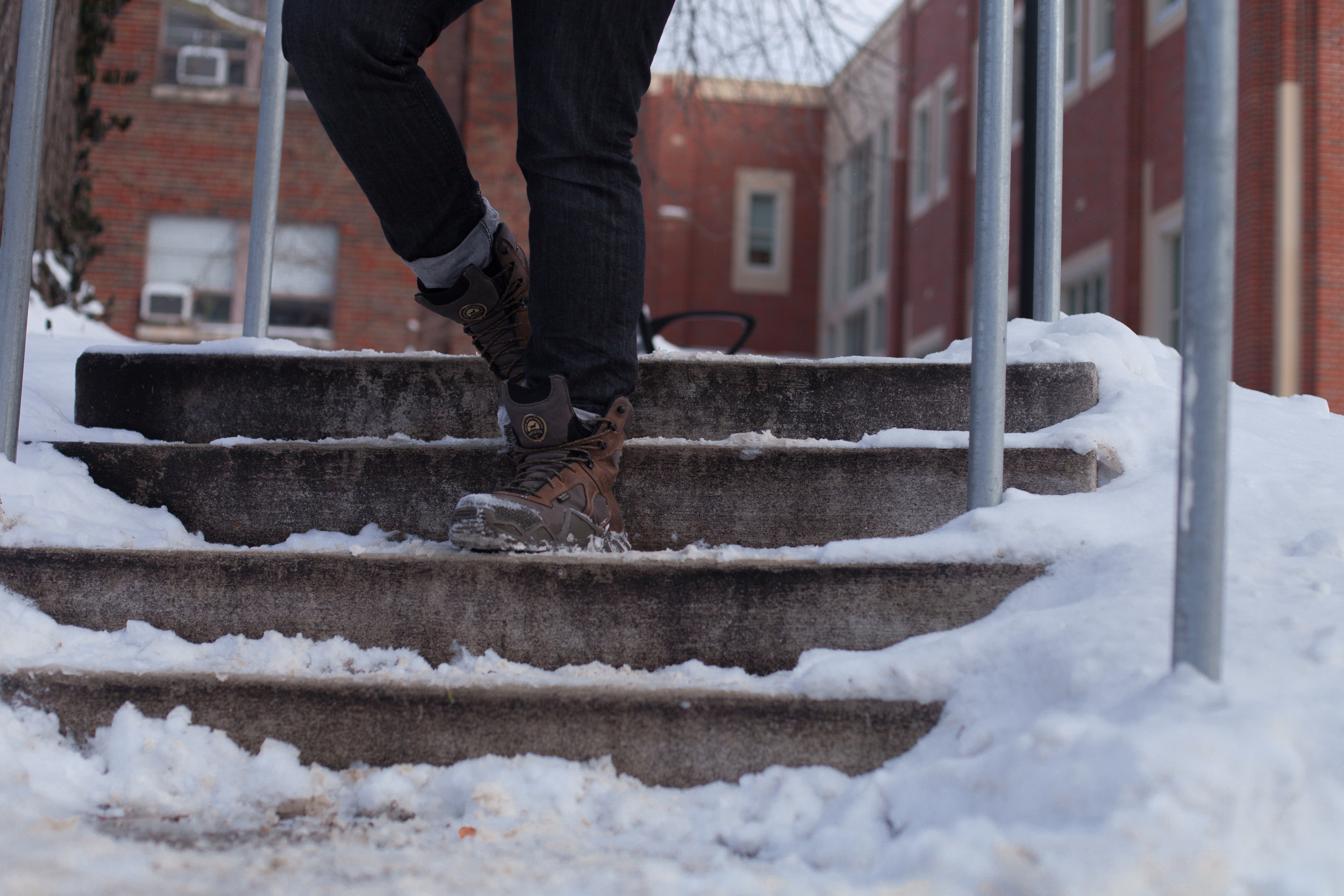The groundhog proved to be correct yet again, after the furry mammal saw his shadow five days ago, predicting six more weeks of winter, which is evident by Tuesday night’s snow fall. Having to continue dealing with these wintry conditions for over a month, it begets the question: how does the university handle mother nature’s ugly side?
As many students might commonly agree on, the answer to that question is “below average.” Whether it’s the claims that they are slow to clear parking lots, the neglect or delay of using salt on the walkways, or professors’ refusal to have “their classes” canceled, students continue to see these actions as the university running the risk of injury when the weather takes a turn for the worst.

“It’s not overall terrible,” sophomore business major Caelyn Reineke said. “They just don’t clean off the sidewalks very well. They need to do more in regards to that because I’ve almost fallen countless times on my way to class.”
Reineke isn’t alone in her sentiment. There have been numerous occasions where students have had near accidents, and some that led into actual injury. A recent example of this worst-case scenario is the experience junior nursing major Julie Wittensoldner had.
“This is the first time I’ve experienced a harsh winter at Capital.” Wittensoldner said. “The sidewalk was icy that morning, and I thought I was being really careful, but I slipped and fell anyway. With my major being very dependent on physical capability, this injury really made it hard. I’ll now be out of clinical for about 6 weeks and have to make it up at some point.”
Not only does Wittensoldner now suffer from physical side effects of her injury, but it created new problems further down the line for her as well. And while the sidewalks were salted later on that day, it doesn’t help Wittensoldner or other students who are required to be out and about early in the morning.

“After the incident, I emailed facilities and they sent me a full report of the salting that morning,” Wittensoldner said. “I understand that it has been hard for them to keep up with the weather, and I was out at 6:30 in the morning. However, this could have easily happened to anyone else, and I know other people who have fallen. I’m grateful I didn’t suffer anything like a head injury, and I hope facilities can keep up with the weather for the sake of everyone’s safety.”
With all this considered, you’d have to wonder what exactly it takes for administration to make changes to improve the safety of its students. According to Jody Fournier, administration considers a number of factors when determining if weather will cause a change in university operations.
“If the weather event happens overnight, we have a team that shares information to make a decision starting at about 4:00 a.m.,” Fournier said. “We track storms that have the potential of affecting operations sometimes days in advance in planning for cleanup and staffing.”

There are not too many cases where major injury has taken place due to lack of care and treatment for the winter weather. This isn’t to say that these situations don’t come about, but it is important to point out that overall facilities manages to take the necessary steps towards students’ safety. But this isn’t also to say that improvements cannot be made to help eliminate situations like Wittensoldner’s from occurring on Capital’s campus in the future.

